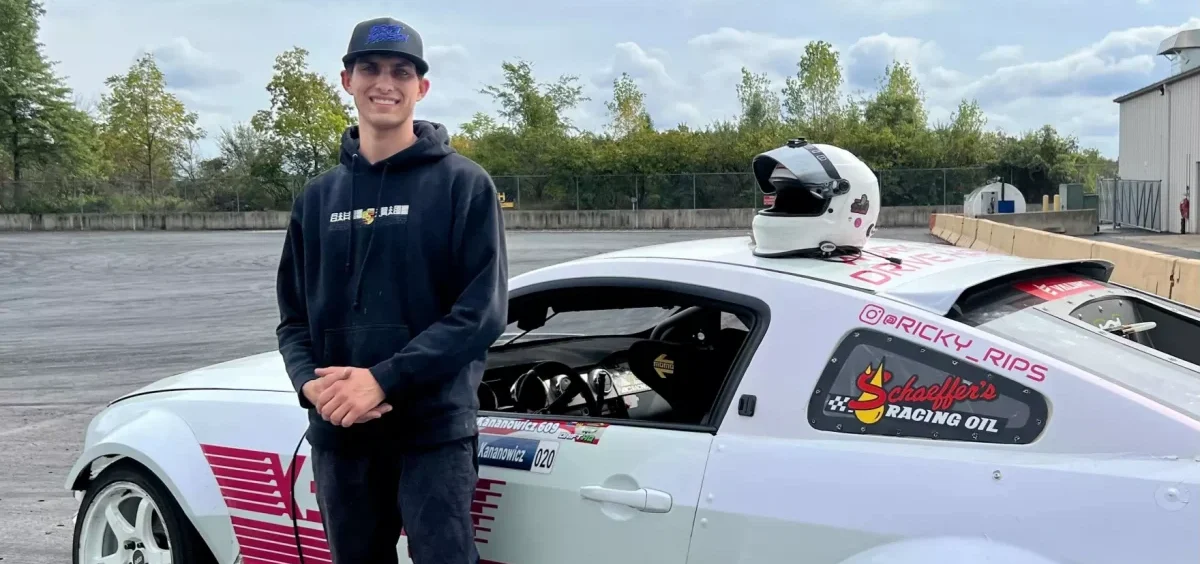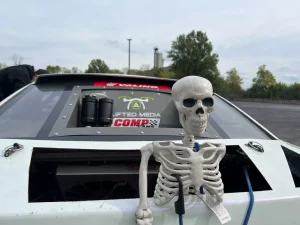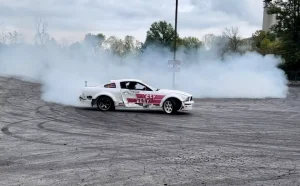News

Students drag race and drift their way to technical degrees at this Ohio college
By: Kendall Crawford | The Ohio Newsroom
Posted on:
LIMA, Ohio (The Ohio Newsroom) — Tire marks paint the black concrete of a secluded parking lot on University of Northwestern Ohio’s campus in Lima. This semester, student Eric Kananowicz is adding to the canvas.
His tricked-out car spun across the pavement. Clouds of smoke and dust engulfed it as he did donuts around a pole. The car looked like it could spin out at any moment.
But that’s an illusion, said Kananowicz.
“It’s just controlled chaos. But there’s a lot more to it than just laying your foot down and letting the car drive around,” Kananowicz said. “It does take a lot of inputs from your brakes, your handbrake, your clutch, your shifter, your steering wheel. It’s not just doing a big burnout, going sideways.”
These chaotic drift maneuvers are illegal on most public lots, but here at UNOH, it’s a part of the learning process. Kananowicz is studying high performance motorsports, like NASCAR or Formula One.
“My end goal is to be a Formula Drift driver and just be able to drive as a career. I just wanna be behind the wheel and have fun,” he said.
At the University of Northwestern Ohio, students are racing to get technical degrees and meet the need.
Majoring in motorsports

“All of the things that go on in this car technically take place in the car that you drive down the street: the suspension, the tires, the brakes, all of the engine components,” Hobler said. “They’re all connected. So he has a lifelong career.”
Teaching the trades
Since the 70s, the college has focused on the automotive and agribusiness industries. Around three-fourths of the university’s students are in the trades programs.
While many rural communities struggle to offer enough technical training to meet industry demand, Lima is the exception, according to Georgetown University researcher Zack Mabel.

“We have students that walk out of here making $100,000 a year. And it’s not always clean and it’s not an office and it’s not with a tie. But I think Ohio should appreciate what we’re doing to keep technicians out in the workforce,” Hobler said.

